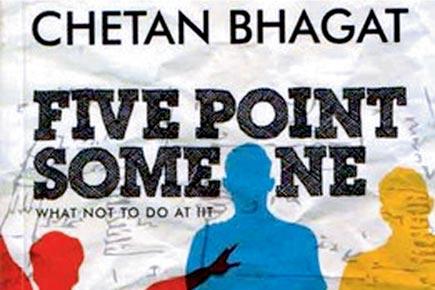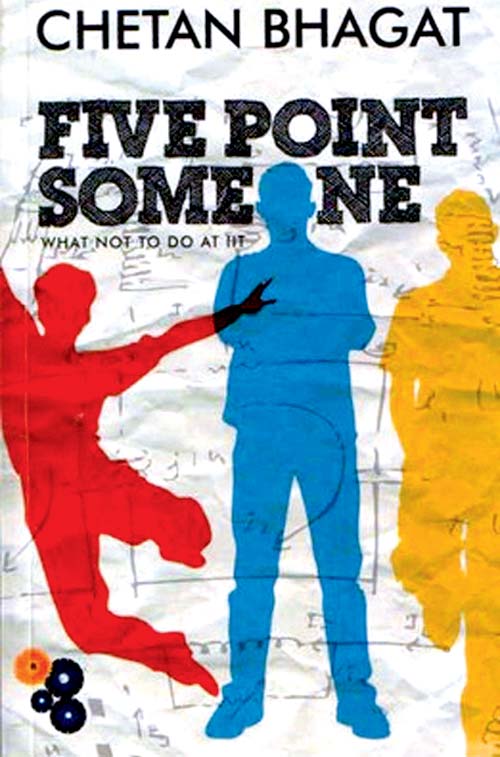Many people are upset that Chetan Bhagat's book Five Point Someone has been suggested in the Delhi University elective paper, as part of the Popular Literature paper


ADVERTISEMENT
 Many people are upset that Chetan Bhagat's book Five Point Someone has been suggested in the Delhi University elective paper, as part of the Popular Literature paper.
Many people are upset that Chetan Bhagat's book Five Point Someone has been suggested in the Delhi University elective paper, as part of the Popular Literature paper.
There are many reasons for their distress. Some of it is a visceral dislike for Chetan Bhagat. It's likely that Mr Bhagat is infinitely kind to people he loves but his persona on social media is not always easy to like, given his permanent petulance, frequent whining and incessant sanctimoniousness. What's even less likeable is Mr Bhagat's lack of expansiveness — where he promotes only himself as a brand and his books as products, but lumps the whole world of arts and ideas into one box as elitism (given his own elite education and address I always find this confusing).
Some of it is despair that bad books have been included. I am not a fan of Mr Bhagat's books. Nevertheless, I have read some of them, and, in fact, have written an 8,000 word essay on his novel Half-Girlfriend. The reason I have engaged with his work is because I am interested in the world of popular culture and what it tells us about our society and the historical moment we find ourselves in.
It is for the same reason that some of us take an interest in Hindi popular cinema. It's not as if I always enjoy each Hindi film I have seen. I frequently find some very badly made and even a little bizarre. Yet, there are elements and tropes, patterns and pleasures that popular films bring us which reveal something of the emotional life of our society, some implictly or nascent rhythms, that I think are worth thinking about. Sometimes I also discover beauty and insight, in places we were conventionally told it does not exist.
While popularity and greatness do coincide from time to time, one does not automatically imply the other. Mr Bhagat and some of his fiercest haters, in some ways, are mirror images of each other.
Mr Bhagat seems to believe the inclusion of his book in the syllabus means it is good literature - which is optimistic (why does he care? Doesn't he think all that stuff is elitist?). By that token, to see this inclusion as the downfall of civilization also seems like a bit of moral panic.
The purpose of education is not to provide a mechanistic list of what to consider great and what to scoff at, to canonise books as saints. Such schemas have rendered people, arts and ideas mediocre, not elite. Education should give us the power to analyse and discern for ourselves the relative value and meaning of things. It is only through these learnings that we are able to be rich audiences for whom rich art might be made.
A serious consideration of Mr Bhagat's novels is certainly one way of putting them in perspective and helping readers move on to expand their repertoire.
But it's also a time to redefine the popular and the terms of how we analyse the world through syllabi. To include Dalit writers as popular writers. To put song lyrics in there. Or the vibrant, pulsating writing all over the Indian Internet. Why should only one kind of popular count? Chetan Bhagat is merely a beginning, why limit growth by making him the end?
Paromita Vohra is an award-winning Mumbai-based filmmaker, writer and curator working with fiction and non-fiction. Reach her at www.parodevipictures.com
 Subscribe today by clicking the link and stay updated with the latest news!" Click here!
Subscribe today by clicking the link and stay updated with the latest news!" Click here!






